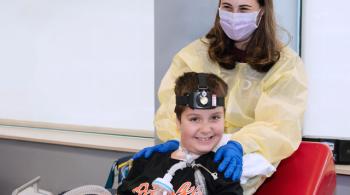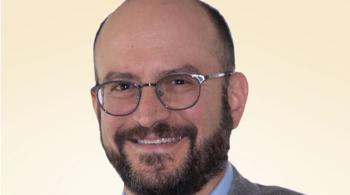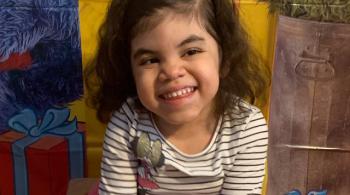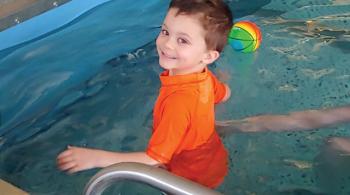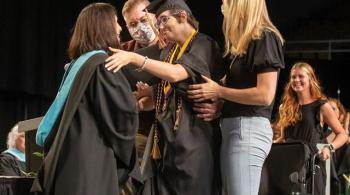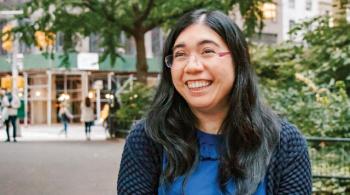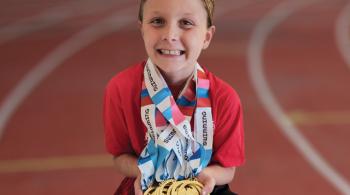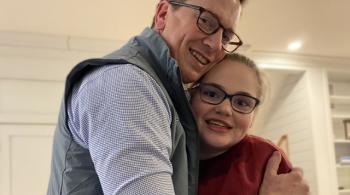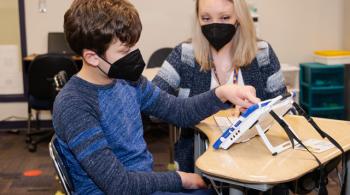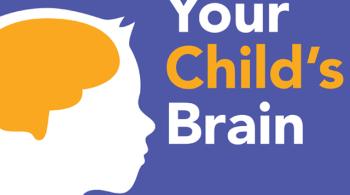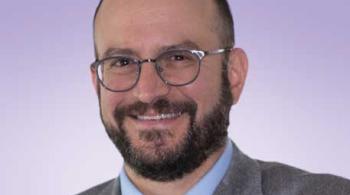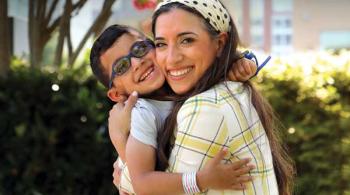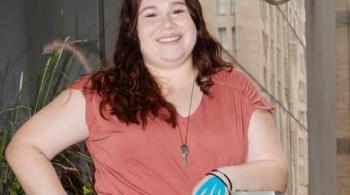By Laura Thornton
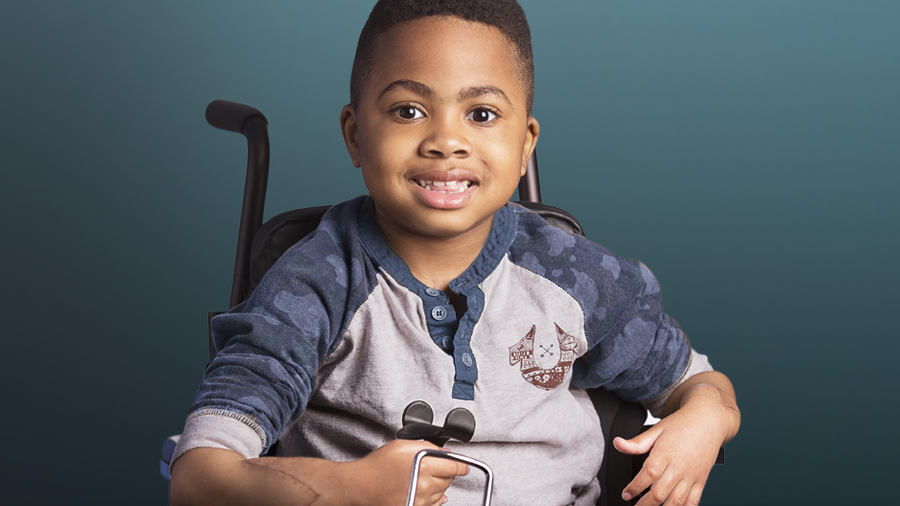
Zion, 13, can hit a baseball and catch a football—typical stuff for a boy his age, but remarkable milestones for Zion, the first child to undergo bilateral hand-transplant surgery.
When Zion was 2, he lost his hands and legs—below the knee—to an infection. Two years later, he began occupational and physical therapies at Kennedy Krieger Institute. “They worked with him on his fine motor skills and learning to balance, walk and be comfortable in his little prosthetics,” explains his mother, Pattie.
In 2015, when Zion was 8, he made history as the youngest person to undergo bilateral hand-transplant surgery, which took place at The Children’s Hospital of Philadelphia (CHOP). The surgery was a success, and Zion returned to Kennedy Krieger for therapy that would help him learn how to use his new hands. Zion continues to do occupational therapy through Kennedy Krieger to this day.
Occupational therapists Gayle Gross and Lindsey Harris have been working with Zion since his surgery. Initially, they collaborated closely with CHOP in developing Zion’s therapy regimen. Within a few months, Zion was able to use his hands to write, eat and get dressed. Within a year, he’d fulfilled one of his personal goals: to swing a baseball bat.
“Everybody at Kennedy Krieger is very motivated and helpful,” says Pattie Ray. “Everyone is focused on your child. They’re like a family.”
Therapy Through Telehealth
In the past few years, Zion has been doing occupational therapy exercises at school and at home, checking in with Harris at Kennedy Krieger once a month. Since the start of the COVID-19 pandemic, Zion has met with Harris twice a week for occupational therapy sessions via telehealth.
Everybody at Kennedy Krieger is very motivated and helpful. Everyone is focused on your child. They’re like a family.”
– Pattie, Zion's mom
At each session, Harris leads Zion through a series of hand stretches, exercises to increase his wrists’ range of motion, and dexterity activities like working with Play-Doh and LEGO bricks. Then, Zion might toss a ball back and forth with a family member while Harris observes remotely. They also work on typing and handwriting.
To Pattie, Zion’s therapy looks more like play than work. Play-based therapy is important for any child working on motor skills, but particularly for Zion, who’s always been very outgoing and eager to join his friends for fun activities and sports.
“He’s very popular,” Pattie says. And he’s very comfortable explaining to others about his hands. “He has always done a good job advocating for himself and answering people’s questions.”
While Zion’s body accepted his new hands right away, Zion himself took a little longer to get used to the idea that the new hands were his.
Harris recalls a time when she and Gross were working with Zion at Kennedy Krieger, making cookies in the Institute’s therapy kitchen.
“For months, Zion would say to me, ‘These are not my hands; these are my doctor’s hands,’” she says. But that day in the kitchen, when Harris turned around for a moment, Zion snatched a couple of extra cookies and ate them up before anyone could tell him he’d had enough cookies for one therapy session.
I am always independent and always will be.”
– Zion
“His response was, ‘I snatched it with my hands—you should be happy for me!’” That’s when Harris knew Zion was going to be just fine.
“I’m still the same kid everybody knew without hands,” Zion says. “Now I can get myself dressed without anybody helping me. I can get myself a snack out of the fridge and heat up a piece of pizza all by myself. I am always independent and always will be.”

